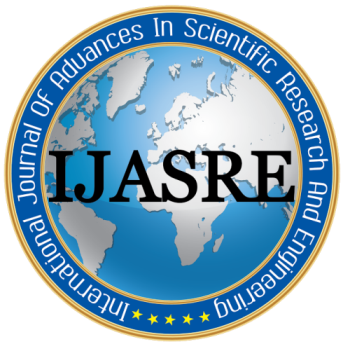Elementary School of Ecosystem-Based
Study on the Implementation of Education Policies in Elementary School of Ecosystem-Based Management State of Indonesia
DOI:
https://doi.org/10.31695/IJASRE.2021.33999Keywords:
Education Policies, National Education, Primary Schools, EcosystemsAbstract
In essence, National education functions to develop and shape the character and civilization of a nation with dignity in the framework of educating the nation's life, aiming at developing the potential of students to become human beings who believe and fear God Almighty, have a noble character, are healthy, knowledgeable, capable, creative, independent, and become a democratic and responsible citizen ”(Law No. 20 of 2003 on the National Education System article 3). Then, in article 4 of the National Education System Law, Number 20 of 2003 states that "Education is held by empowering all components of society through participation in the implementation and control of the quality of education services". This study examines the implementation of ecosystem-based education in SDN 16, Rukoh, Banda Aceh because basic education is the main pillar of cultivating the character of the nation's children. Especially in the context of Aceh as the Veranda of Mecca which underlies all of its policies with Islamic principles. Thus, the title of this dissertation proposal is Ecosystem-Based Elementary School (Study on Implementation of Curriculum 2013 on Ecosystem-Based Education in SD Negeri 16 Banda Aceh City). The purpose of this study was to describe and analyze the implementation of the education office's policies on ecosystem-based schools at SD Negeri 16 Banda Aceh. Describe and analyze the supporting and inhibiting elements of the implementation of ecosystem-based school education policies at SD Negeri 16 Banda Aceh. In the research discussion, the main theory is used, namely the theory of educational policy implementation and several supporting theories, namely the theory of education, the sociological theory of education, the concept of the learning process, and the concept of the educational ecosystem. This research method using a qualitative descriptive approach with data analysis used interactive analysis. The results of research on the implementation of ecosystem-based primary school education policies can be formulated through findings and propositions. As the final result, the major proposition is as follows: The learning process through the implementation of ecosystem-based elementary school education is formed through the involvement and support of school stakeholders and the presence of local government so that personality, character, environmental awareness are created.
References
Christopher Pollit and Geert Bouckaert. 2000. Public Management reform: A Comparative Analysis. London: Oxford University Press.
Sadhana, Kridawati. 2011. Reality of Public Policy. Pustaka State University of Malang (University Press), Malang.
Koesoema, Doni. 2010. Character Education; Strategy for Educating Children in a Global Age. Jakarta: Grasindo.
Siswoyo, Dwi et al. 2007, Science Education, Yogyakarta: UNY Press.
Admodiwirio, Soebagio. 2000. Indonesian Education Management. Jakarta: Ardadizya Jaya.
Daryanto. 1997. Educational Evaluation. Jakarta: Rineka Cipta. Ministry of National Education.
Herdiansyah, Haris. 2010. Qualitative Research Methods for Social Sciences. Jakarta: Salemba Humanika.
Miles, M.B & Huberman A.M. 1984. Qualitative Data Analysis. Translation by Tjetjep Rohendi Rohidi. 1992. Jakarta: University of Indonesia Publishers.
Sugiyono. 2012. Quantitative Qualitative Research Methods and R&B. Bandung: Alfabeta.
Downloads
How to Cite
Issue
Section
License
Copyright (c) 2021 Johan Yunus, M. Tauchid Noor , Kridawati Sadhana

This work is licensed under a Creative Commons Attribution-NonCommercial 4.0 International License.








